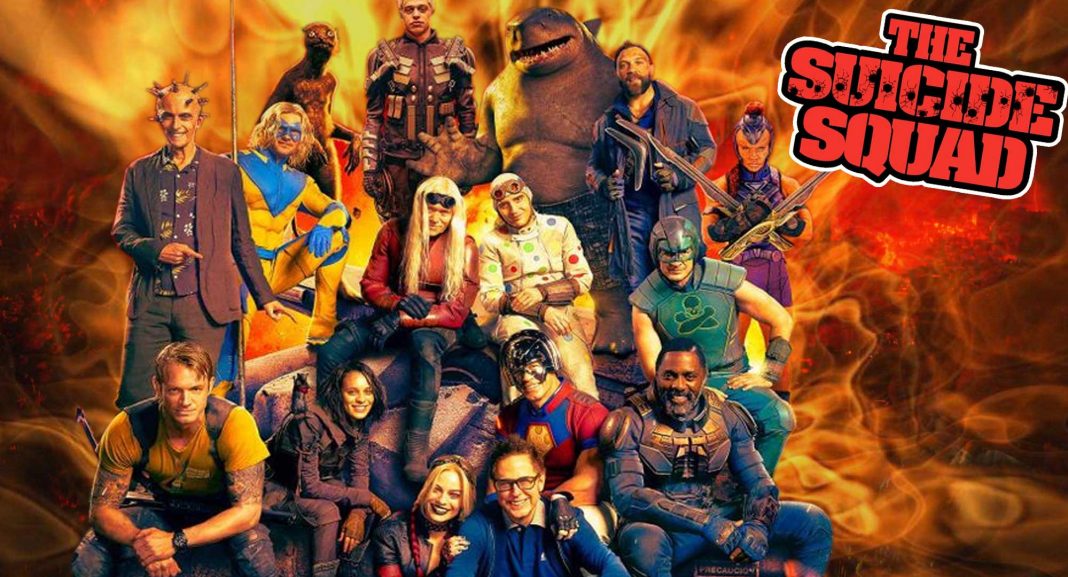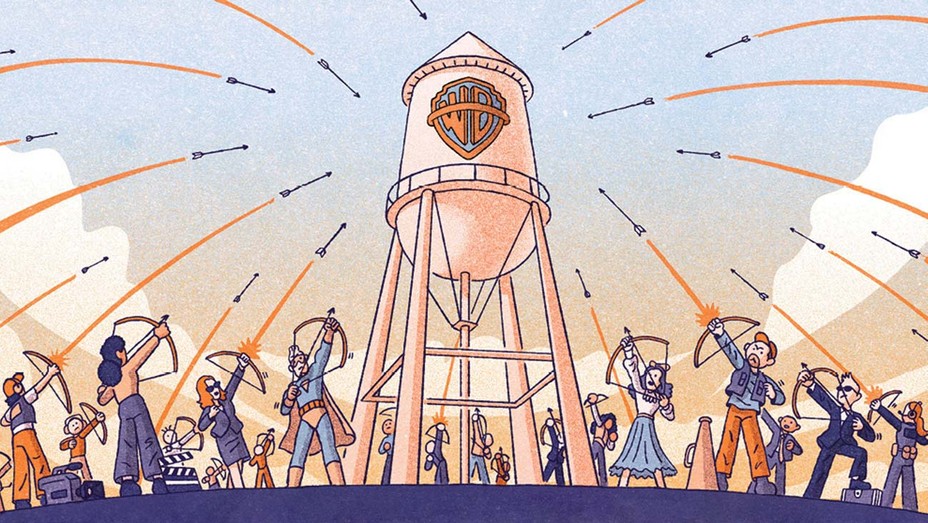Hollywood continues to fume about WarnerMedia’s decision to release their entire movie slate simultaneously on HBO Max and in theaters. Well, it’s not just that decision, but how it was made. Kim Masters has a follow-up story, accompanied by the delightful illustration by Tim Peacock, above, that has plenty of seething and lots of plausible potential legal action from some production partners who were blindsided by the move. It seems that most people understand that Something Had To Be Done — they just didn’t like being blindsided by the decision. And the creative community continues to be mad over not getting their theatrical paydays. Among them, Denzel Washington, about as close to royalty as Hollywood has these days, and star of a new film. The Little Things, which will lead the parade to streaming:
Like everyone involved with the 2021 slate, Washington was blindsided by the decision to stream day-and-date. Given the pandemic, sources say, he might have been amenable to the move if it had been done transparently the way Warners had handled Wonder Woman 1984. “Many artists would say, ‘As long as we have a fair negotiation, I’m fine,’” says a source involved in the situation.
So Warners could at least partially solve the problem with money, though it hasn’t yet. But even if a Little Things deal is made, that doesn’t address the filmmakers’ unhappiness at being blindsided, nor their concern that the movie is supposed to debut Jan. 29 and Warners, having dismissed veteran Blair Rich, has a leaderless marketing department. Industry insiders note with concern that Warners seems to be purging just about every exec with ties to the studio’s formerly talent-friendly culture — which will have a long-term impact that seems inconsistent with a strategic shift necessitated by the pandemic. (The studio has hired marketing exec Josh Goldstine to consult on Little Things and is rumored to be close to hiring a veteran marketing executive to work across all platforms, which might help the company figure things out.)
Emphasis mine. The second paragraph above is interesting to Kremlinologists. The purge of loyalists is consistent with what we’ve seen at DC Comics, as is the sudden rudderless marketing department in a time when marketing is the main thing.
Indeed, WarnerMedia head Jason Kilar is himself a big fan of marketing, as he revealed in an interview with Variety‘s Claudia Eller. Kilar (whose name, thankfully, rhymes with Skylar) has been on a charm tour trying to smooth the waters; the jury has yet to render a decision on its effectiveness. But anyway, this passage, a quote from Kilar, struck me:
Much like every other aspect of all of our businesses, not just at WarnerMedia but for anybody who’s in the storytelling business, marketing is going to change on the road ahead. And I think that it should because when you think about the role of marketing and what it ultimately needs to do, which is to influence someone, to shake them out of their slumber, to be excited about a story, and to come and spend time with us, I think that technology provides so many great things that candidly were not available two years ago or five years ago in terms of what we can and should do. So whether that’s the targeting of marketing, whether it’s the measurement of marketing, or whether it’s doing things creatively that weren’t possible, you should expect all of those things in our future. I do get excited about the future of how we think about marketing because it should be ever more ambitious. We tell really big stories, and I think the marketing needs to be as big to be able to match the tone of the storytelling.
You hear that? MARKETING. I can understand clearing out the old guard who insisted on getting the word out with, say, an ad in the trades and a carrier pigeon. Times have changed. We need to address the new media. Bring on the TikTok natives!
In a further excerpt from the Variety sitdown, Kilar returns to another favorite topic: the fans, whose perspective, he says, is how he approaches all decision making.
“The common thread in all of those experiences was starting first and foremost with the customer, with the audience, with the fan and inventing on their behalf,” Kilar said. “How can we move the world through story, which of course is very focused on the fan. And what we want to do is leverage every single tool in the arsenal to be able to do a better job each and every day and that includes technology.”
Accompanying this fan-forward strategy was a shake-up at WarnerMedia that saw Warner Bros. CEO Ann Sarnoff expand her purview to include oversight of content for HBO, HBO Max and the linear Turner networks; as well as the sudden departure of WarnerMedia executives Bob Greenblatt and Kevin Reilly.
For Kilar, the decision was a tough but necessary one.
“I felt that the right thing to do in service of the fan and in service of the customer was to have one group of studios and networks rather than what was two. I had a tough decision to make, which was who was going to lead that, and I chose Ann Sarnoff,” Kilar said. “But it wasn’t for performance reasons in terms of Bob or Kevin doing a bad job at all, and I was very vocal about saying that in early August when that was communicated…. But I agree, anytime you have beloved leaders like that who are so good at what they do being impacted like that, that is going to send a shockwave through an organization.”
It’s true: Fans like nothing more than firing executives. Just ask them.
Anyway, I can’t help but feel a pang of sympathy for Jason Kilar. The pandemic has dealt a crap hand to everyone, and studios — where millions of dollars shift hands on a regular basis — aren’t nimble in the best of times. He’s clearly a smart guy — he founded Hulu! — but communicating a vision for choreographing entertainment’s dance between art and commerce in a whole new world is a brutal task. It’s no fun watching him struggle through it.









